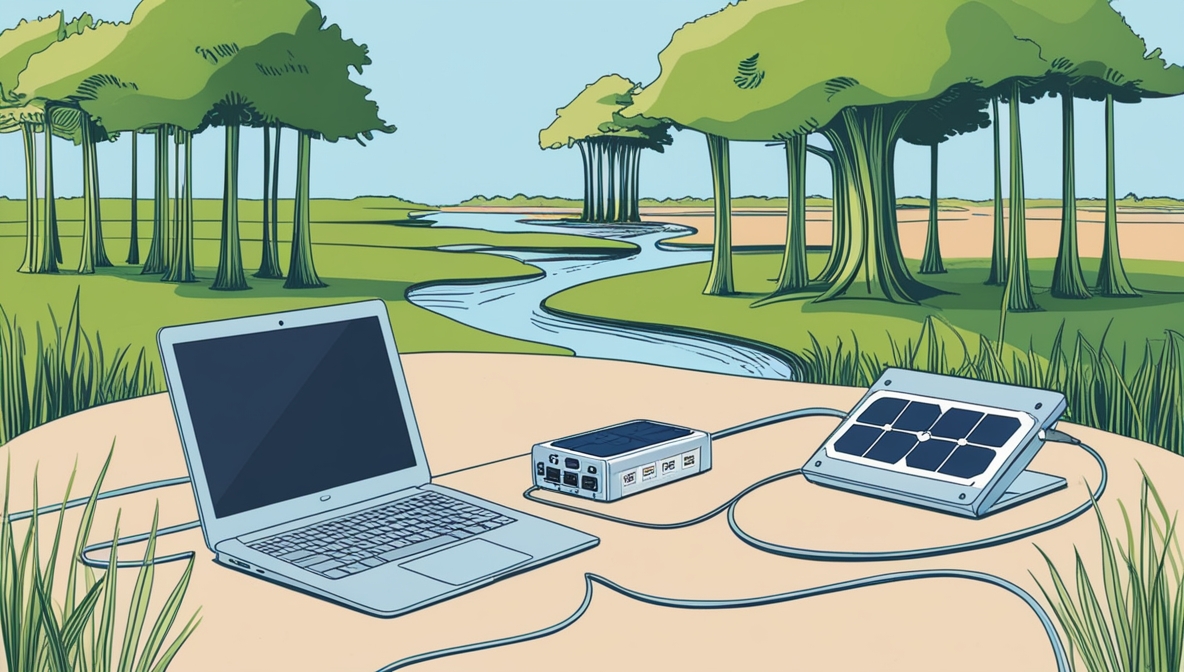
Sustainable technology practices allow individuals and businesses in the Lowcountry to upgrade their systems while minimizing waste. With environmental consciousness growing, implementing these practices ensures progress without unnecessary harm to our surroundings. Here are actionable ways to make tech upgrades sustainable and waste-free.
Repurpose Older Devices
Instead of discarding older technology, consider repurposing it for secondary functions.
- Home Servers: Use old computers to create media servers or file storage systems.
- Digital Picture Frames: Repurpose old tablets as smart displays or photo frames.
- Kids’ Devices: Convert older smartphones or tablets into safe devices for children with educational apps and restricted access.
- Donation Options: Many organizations accept functional older tech for educational or non-profit use.
Prioritize Repair Over Replacement
Modern devices often fail due to minor issues, yet many people replace them instead of repairing.
- Repair Services: Utilize local repair shops in the Lowcountry to fix screens, batteries, and other components.
- DIY Kits: Kits from platforms like iFixit allow users to perform simple repairs at home.
- Extended Life: Regular maintenance, such as cleaning dust from internal parts or upgrading software, extends device life significantly.
Trade-In Programs
Many retailers and manufacturers offer trade-in programs to offset the cost of upgrades.
- Device Buybacks: Brands like Apple and Samsung provide credit for older devices when purchasing new ones.
- Retailer Programs: Local electronics stores may have trade-in deals for tech enthusiasts.
- Eco-Certified Disposal: Ensure traded devices are refurbished or recycled by certified e-waste handlers.
Invest in Modular Technology
Future-proofing your tech choices reduces waste in the long term.
- Modular Laptops: Devices like the Framework Laptop allow for component upgrades without replacing the entire unit.
- Replaceable Batteries: Look for devices with user-replaceable batteries to avoid premature disposal.
- Custom PCs: Build custom desktops that allow incremental upgrades over time.
Responsible E-Waste Recycling
Improper disposal of electronics harms the environment. Recycle responsibly.
- Local Drop-Off Points: Utilize Lowcountry recycling facilities that handle electronics, such as Charleston County’s Recycling Centers.
- Manufacturer Programs: Brands like Dell and HP offer take-back programs for old equipment.
- Recycling Events: Attend e-waste recycling drives hosted by community organizations.
Adopt Energy-Efficient Devices
Energy-efficient devices consume less power, reducing your carbon footprint.
- ENERGY STAR Certified Products: Look for devices certified for energy efficiency.
- Smart Power Strips: Eliminate phantom energy consumption by using power strips that shut off idle devices.
- LED Monitors: Upgrade to LED-based screens, which use significantly less power than older models.
Choose Refurbished Tech
Refurbished technology offers a budget-friendly and sustainable alternative to new purchases.
- Certified Refurbished: Purchase from authorized sellers like Amazon Renewed or manufacturer-certified programs.
- Quality Checks: Refurbished devices undergo extensive testing, ensuring they perform like new.
- Reduce Demand for New Materials: Buying refurbished minimizes the need for raw material extraction and manufacturing emissions.
Opt for Cloud Solutions
Reduce physical hardware needs by transitioning to cloud-based services.
- File Storage: Use cloud storage like Google Drive or OneDrive instead of external hard drives.
- Cloud Computing: For businesses, virtual servers replace physical ones, reducing energy and space requirements.
- Software-as-a-Service (SaaS): Access software via cloud subscriptions instead of installing on individual devices.
Build Community Sharing Programs
Tech sharing reduces individual consumption and fosters collaboration.
- Device Libraries: Set up shared device pools in communities or co-working spaces.
- Tool Lending: Share rarely used equipment like projectors, printers, or advanced cameras among neighbors.
- Workshops: Organize repair and repurposing workshops to encourage collective sustainability efforts.
Reevaluate Tech Needs
Before upgrading, assess whether new devices are necessary. Use tools like a bottleneck calculator to determine if your current device’s performance issues stem from specific hardware components. This can help you identify whether upgrading individual parts, such as RAM or a GPU, will suffice instead of replacing the entire system.
- Software Updates: Updating existing software may eliminate the need for new hardware.
- Peripheral Upgrades: Adding external storage or new peripherals can extend the life of older devices.
- Reevaluate Usage: Analyze whether all devices in use are necessary and consolidate functions where possible.
Encourage Manufacturer Accountability
Hold tech companies responsible for sustainable practices.
- Demand Transparency: Choose brands with clear sustainability commitments.
- Support Eco-Friendly Brands: Companies like Fairphone prioritize ethical sourcing and repairable designs.
- Advocate for Policy Change: Engage in petitions or campaigns urging manufacturers to adopt greener practices.
Educate and Advocate
By promoting sustainable living in the Lowcountry, communities can collectively reduce tech waste and create a model for responsible consumption. Hosting workshops on repair techniques or organizing e-waste collection drives fosters awareness and long-term environmental benefits
- Community Events: Host talks or meetups on sustainable practices in the Lowcountry.
- Social Media Campaigns: Share tips and resources on sustainable technology management.
- Workplace Initiatives: Encourage businesses to implement green tech policies, such as device recycling programs.
Sustainable tech practices ensure that progress aligns with environmental responsibility. By repurposing, repairing, recycling, and investing in durable technology, the Lowcountry can maintain a forward-looking approach without unnecessary waste.